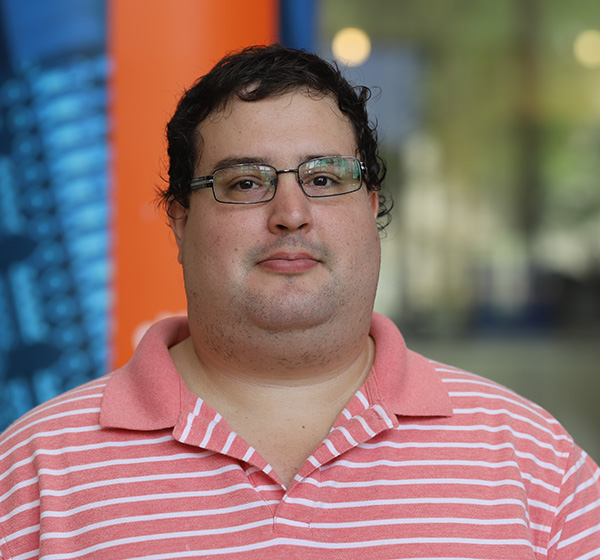
Assistant professor in electrical engineering and computer science Jason Pollack envisions a promising future for quantum at Syracuse University. As the College of Engineering and Computer Science (ECS) undergoes significant growth with renovated lab spaces, new faculty members, and groundbreaking research, it marks a transformative period not only for the college but for quantum-related fields as well.
“It’s exciting for me to be in a place where you can build a program and culture from the ground up,” Pollack says. “I’ve been telling my students that by the time they finish their grad school career, there will probably be three times as many people in quantum-related subjects as there are now. It’s very exciting that Syracuse University has put in all these resources.”
Prior to being an assistant professor in ECS, Pollack attended the California Institute of Technology for graduate school and completed post-doctoral fellowships at the University of British Columbia and the University of Texas at Austin. He became interested in how underlying quantum physics can be seen in the world around us and switched from physics to computer science, collaborating frequently with mathematicians, engineers, scientists and experts within related fields.
Pollack’s research focuses on the theory of quantum information. He aims to understand basic information and computational structures underlying quantum systems. He also collaborates with other faculty members studying quantum in ECS and across the university, particularly in discussing ideas such as random quantum walks in superconducting cavities and the design of metamaterials with exotic refractive index. This highlights the significant role theorists like Pollack play in quantum experiments.
“Without theory, experimentalists wouldn’t know what theory to work on next. There’s always a whole set of possible things to do but then there’s the question of what to do next to increase my technical prowess or understanding. You have to take some steps to convert your results or what you’d like to understand about the world.”
Pollack’s paper published in March 2024 discusses quantum thermodynamics and focuses on understanding the entanglement structure of quantum states. When two particles become entangled, their properties may remain correlated regardless of the distance. “The world is made up of atoms and molecules, but if you want to run a heat engine, you don’t have to manipulate individual gasoline molecules to run the engine. I want to understand what types of interaction a quantum system can have with an environment so I can treat it like a traditional, classical thermodynamic system. If I wait long enough, it becomes characterized by its temperature or energy.”
Pollack also has research interests in quantum decoherence, which refers to the study of interactions between the environment and quantum systems (tiny particles like atoms and molecules.) His other research program is concerned with the physics seen by observers with only limited access to, or an imperfect ability to make measurements on, the quantum state.“Syracuse’s quantum community will be changing within a few years. The plan for ECS is to grow quantum faculty, and we’re going to be on the map. Students who want interdisciplinary work can certainly find it.”
Pollack will be teaching graduate course CIS 700 “The Structure of Quantum States” where students will learn the features of quantum-mechanical systems. Starting next academic year, he will also be teaching an undergraduate course on quantum computing.
